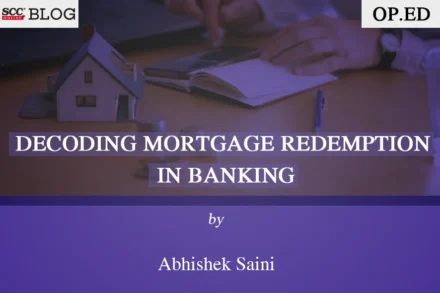
Decoding Mortgage Redemption in Banking
by Abhishek Saini†

by Abhishek Saini†
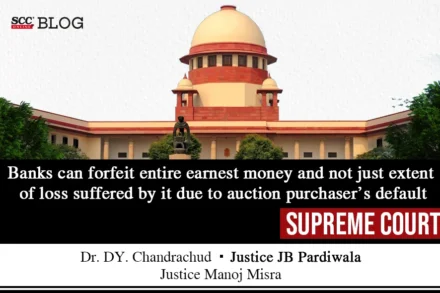
Any dilution of the forfeiture provided under Rule 9(5) of SARFAESI Rules would result in entire auction process under SARFAESI Act being disregarded by mischievous auction purchasers through sham bids, thereby undermining the overall object of the Act of promoting financial stability, reducing NPAs and fostering a more efficient and streamlined mechanism for recovery of bad debts.
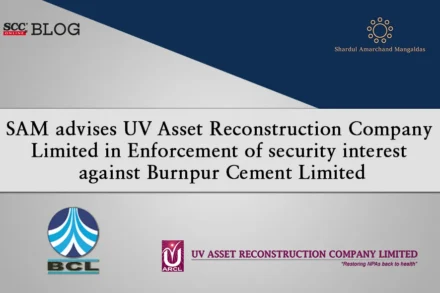
Shardul Amarchand Mangaldas advises UV Asset Reconstruction Company Limited (“UV”) in enforcement of security interest against Burnpur Cement Limited (“BCL”) in its
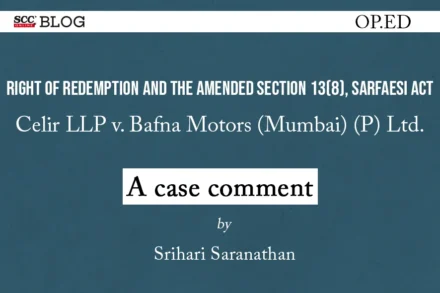

The Court is unable to accept that the legislative intent is to provide parallel regimes for the recovery of debts. The provisions of Section 13(10) of the SARFAESI Act, thus, cannot be interpreted in the manner as contended on behalf of the petitioner.
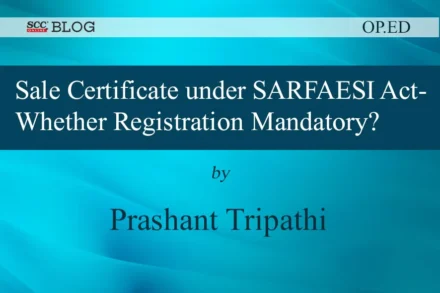
by Prashant Tripathi†
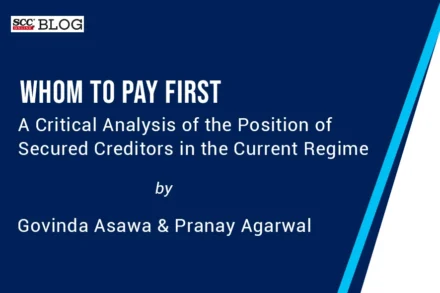
by Govinda Asawa† and Pranay Agarwal††
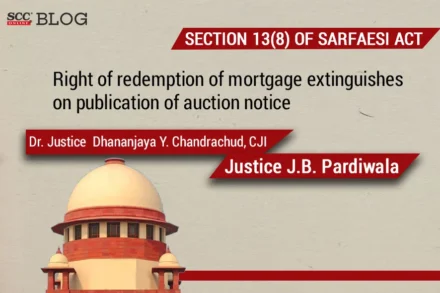
The respondents in the instant matter constituted the borrower, guarantor and the bank (secured creditor), while the appellants were the auction purchasers.

“The scope of writ jurisdiction cannot be allowed to trounce the statutory obligation, on the stratagem of efficacious alternate remedy.”
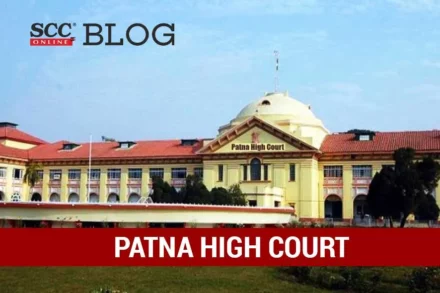
The right to recovery of the Banks and Financial Institutions if pitted against the constitutional right of life of a person to live with dignity and not to be deprived of without following the established procedure of law, the constitutional rights of the person shall prevail.
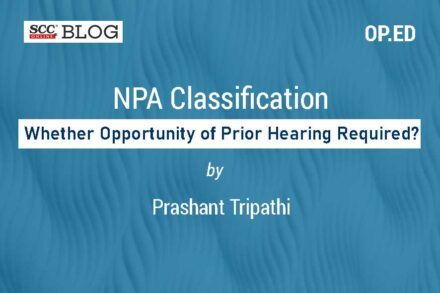
by Prashant Tripathi†
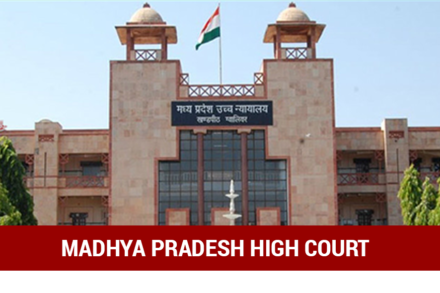
Madhya Pradesh High Court held that no document needs to be provided for registering an application under S. 17 of the SARFAESI Act, when the same is not a condition precedent required under the said Section.
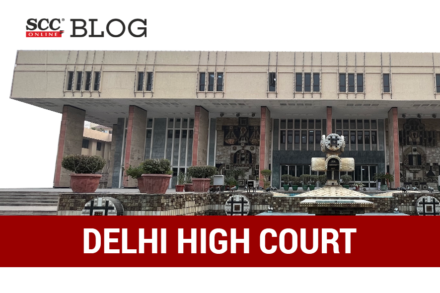
Delhi High Court held that non-signatory or third party could be subjected to arbitration proceedings without their prior consent. It was necessary to examine the touchstone of direct relationship of signatory parties to the arbitration agreement, forming part of a composite transaction.
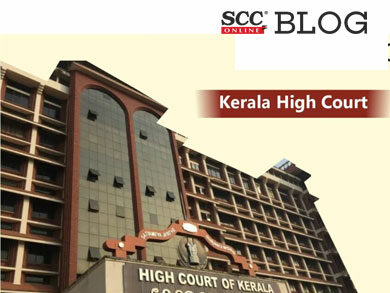
Kerala High Court dismissed a petition seeking setting aside of sale of property conducted in violation of SARFAESI Rules, and saidthat the relief sought is within the scope of the Debt Recovery Tribunal, and not Article 226 of the Constitution of India.
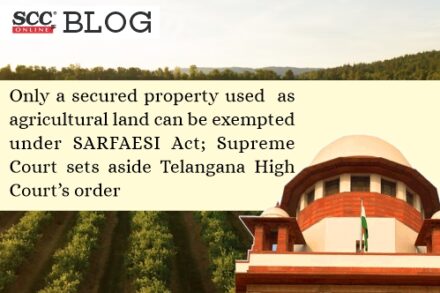
Supreme Court opined that instead of shifting the burden of proof on the secured creditor to prove that the secured property was not agricultural property, the Telangana High Court should have laid down the burden of proof on the borrowers.
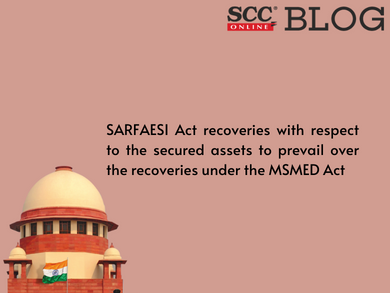
The Supreme Court considered the provisions of Section 15 to 23 read with Section 24 of the MSMED Act and the provisions of SARFAESI Act and stated that there is no repugnancy between the two enactments and no conflict between the specific subject of ‘priority' . It, hence, upheld the subsequent enactment of law with non-obstante clause in SARFAESI Act over MSMED Act.
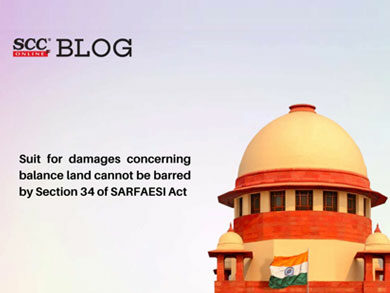
Supreme Court: In an appeal against the judgment passed by the Kerala High Court, wherein it has set aside the
Rajasthan High Court: Mahendar Kumar Goyal, J. dismissed the writ petition in view of availability of alternative remedy to the petitioners under
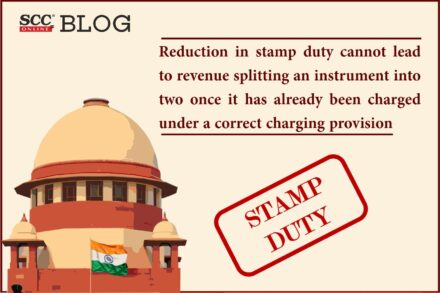
Supreme Court: While dealing with a case under the Gujarat Stamp Act, 1958, the bench of Hemant Gupta and V. Ramasubramanian*, JJ has held that
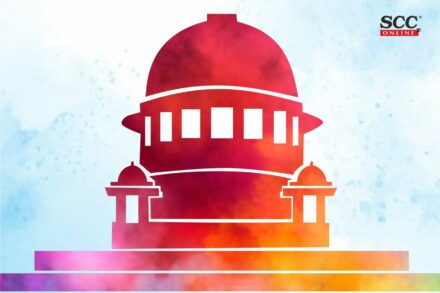
Supreme Court: The Division Bench comprising of M.R. Shah and B.V. Nagarathna, JJ., directed the Indian Bank to refund the 25% auction